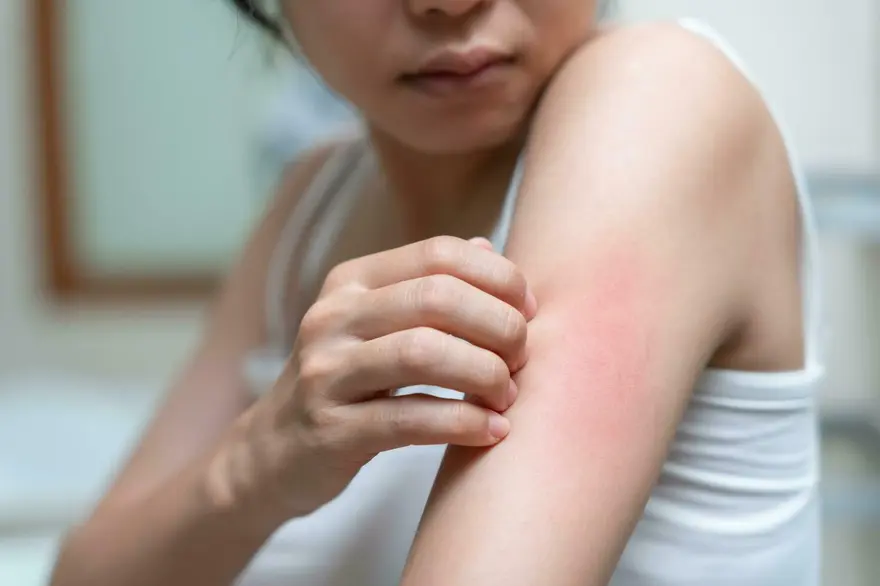Preventive Healthcare
Sars COV 2 Omicron BF 7 Variant : Symptoms, Causes, Precaution and Latest Info
17210 Views
0

The new and highly infectious Covid-19 strain Omicron BF.7, which is a subvariant of Omicron has wrought havoc in China, has also made itself known in India. Covid-19 until the year 2022 comes in ten different variations, the most recent being BF.7. It is a brand-new coronavirus mutant with a short incubation period and a quick rate of transmission to other people.
COVID Omicron BF.7 Strain - What is It?
With one of the highest transmissibilities among all Covid variants, the variant is an Omicron mutant. According to studies, this mutant has a R0 value of roughly 10-18.6, which means that every person who is infected can spread the disease to 10-18.6 persons nearby.
The danger of contracting this virus is higher in those who are unvaccinated or have weakened immune systems, such as the elderly and young children.
COVID Omicron BF.7 Symptoms
Here is all the information you require about Omicron BF.7 signs and symptoms.
The symptoms are the same as those of earlier Covid-19 versions, including
- Runny Nose
- Respiratory Tract
- Infection
- Fever
- Cough without Phlegm
- Sore Throat
- Muscle Discomfort
- Weariness
- Sneezing
- Headache
- Hoarse Voice
- An Altered Sense of Smell
Another symptom that is common among the elderly or those with underlying conditions is pneumonia.
COVID Omicron BF.7 Causes of Accelerated Spread
The COVID-19-causing SARS-CoV-2 virus evolved to become more immunologically evasive by mutating, which led to the creation of the BF.7 subvariant.
BF.7 bears the same mutation (R346T) in its spike protein (a protein on the surface of coronavirus that allows it to attach to and infect the cells) as the "parent" variation, BA.5. The ability of the virus to evade neutralising antibodies produced by vaccinations or prior infections has been connected to this mutation.
Therefore, you can be mistaken if you believe that earlier COVID-19 infections or immunisations will entirely protect you from the BF.7.
The subvariant does have a higher potential for reinfection or for infecting people who have already had a vaccination, according to experts. A recent study also revealed that BF.7 could evade protection even in the case of patients who had already received three vaccinations.
COVID Omicron BF.7 Precautions and Safety Measures
As of December 2022, the precautionary dose of Covid-19 has been taken by between 27 and 28% of India's eligible population. Complications from the subvariants can be avoided with the Covid vaccine and booster injections.
You should wear a mask in crowded places and take booster dosages as the first and most important safeguard. Maintaining hygiene by regular hand washing and social distancing are ways to curb the spread of the variant.
People with weak immune systems should take extra precautions now that the holiday season is quickly approaching. You must practise good hygiene. The best tactic to reduce the danger of the Omicron BF.7 variant is Test-Track-Treat-Vaccinate. For Covid 19 Testing, you can visit your nearest Metropolis Lab or book a test at home.
Who is More Likely to Contact with Omicron BF.7 Variant Infection?
Unvaccinated individuals are more at danger. The chance of contracting this infection is also increased in those with weakened immune systems, including as children, the elderly, pregnant women, and persons with numerous comorbidities, such as uncontrolled diabetes, cancer, kidney, or heart disease.
As a precautionary measure, people should adhere to Covid-appropriate behaviour and get vaccinated for Covid-19.
COVID Omicron BF.7 Latest Update
According to reports, BF.7 is causing the present COVID situation in China. It is anticipated that approximately 60% of China and 10% of the global population are expected to contract the disease in the ensuing three months, with millions of deaths. According to numerous assessments, the Chinese still have a low immunisation rate and make insufficient investments in emergency care.
The likelihood that the BF.7 will have the same negative effects in India as it did in China is remote given the country's high immunisation rates and improved vaccine quality. Even the authorities continue to believe that the issue is well under control. To safeguard ourselves and avoid a potential fourth wave, it is advised to exercise prudence and abide by any government-issued directives.























 WhatsApp
WhatsApp
